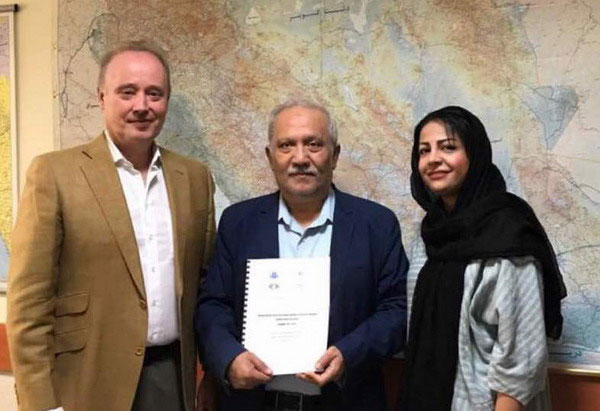 17 September 2018 – The Ministry of Health and Medical Education of the Islamic Republic of Iran, in collaboration with stockholders from other ministries (such as Ministry of Agriculture-Jahad) and the Food and Drug Administration, has developed a national antimicrobial resistance action plan. It is aligned with the Global Action Plan and follows an incremental approach according to country-specific needs, reflecting the AMR development and making best use of available resources using a multisectoral approach.
17 September 2018 – The Ministry of Health and Medical Education of the Islamic Republic of Iran, in collaboration with stockholders from other ministries (such as Ministry of Agriculture-Jahad) and the Food and Drug Administration, has developed a national antimicrobial resistance action plan. It is aligned with the Global Action Plan and follows an incremental approach according to country-specific needs, reflecting the AMR development and making best use of available resources using a multisectoral approach.
In May 2015, the 68th World Health Assembly adopted the global action plan on antimicrobial resistance. The goal of the global action plan is to ensure, for as long as possible, continuity of successful treatment and prevention of infectious diseases with effective and safe medicines that are quality-assured, used in a responsible way, and accessible to all who need them.
The 68th World Health Assembly also urged all Member States to develop and have in place by 2017, national action plans on antimicrobial resistance that are aligned with the objectives of the global action plan. The Islamic Republic of Iran is among the 7 countries in WHO's Eastern Mediterranean Region, which has submitted its endorsed national plan to combat AMR. After providing a version in Farsi in 2017, the official English version is now available.
A manual has been developed by WHO, in collaboration with the Food and Agriculture Organization of the United Nations (FAO) and the World Organisation for Animal Health (OIE), to assist countries in preparing or refining their national action plans. It aims to facilitate the participation of all relevant sectors, and outlines an incremental approach that can be adapted by countries to their specific needs, circumstances and available resources. A number of supporting documents and tools has also been developed that accompany the manual.
The Ministry of Health and Medical Education and WHO recognize AMR as a major public health threat which not only puts life of people at risk but threatens the achievement of the Sustainable Developmental Goals. Major challenges to combat AMR include lack of proper knowledge and understanding of antimicrobial resistance, absence of strong policies to regulate the use of antibiotics, lack of adequate national infection prevention and control (IPC) programmes in health care facilities and inadequate laboratory services at national level to monitor trends of resistance.
Related links
National antimicrobial resistance action plan | English version
Global Action Plan on antimicrobial resistance
Antimicrobial resistance: a manual for developing national action plans


